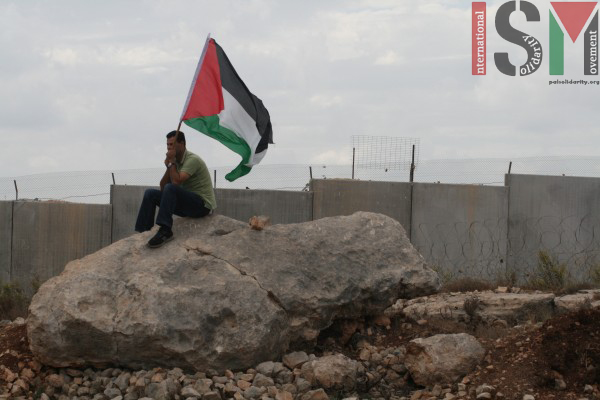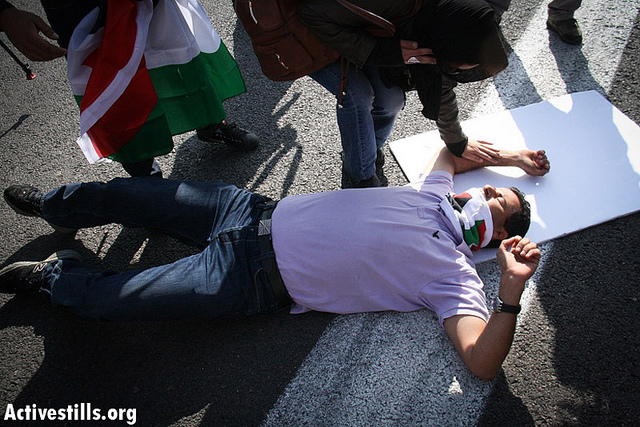Tag: Abdallah Abu Rahmah
-
Human Rights Defender Abdallah Abu Rahma receives guilty verdict from military court
21st October 2014 | International Solidarity Movement | Bil’in, Occupied Palestine On October 21st, Human Rights Defender Abdallah Abu Rahma was found guilty by an Israeli military court of “disturbing a soldier”. “Demonstrating against the occupation cannot be a criminal offence. Finding Abdallah guilty only shows that the [Israeli] military force is a tool to perpetuate the…
-
Settlers hit activists at peaceful roadblock protests in the West Bank
by Davey Brandi and Ellie 3 December 2012 | International Solidarity Movement, West Bank On two different occasions while Palestinians, accompanied by international activists, peacefully blocked roads leading to illegal settlements to demonstrate against the occupation and settlements, settlers purposefully injured activists in hit and run incidents. On November 14 while a group of protesters…
-
Hundreds celebrate popular struggle at the opening of the 6th Bil’in conference
20 April 2011 | Popular Struggle Coordination Committee Dozens of diplomats and senior figures from across the Palestinian political spectrum joined hundreds of activists in the opening of the 6th International Bil’in Conference on Popular Resistance. Palestinian PM, Salam Fayyad, called for the international community to promote Palestinian self determination. The 6th International Bil’in Conference…


